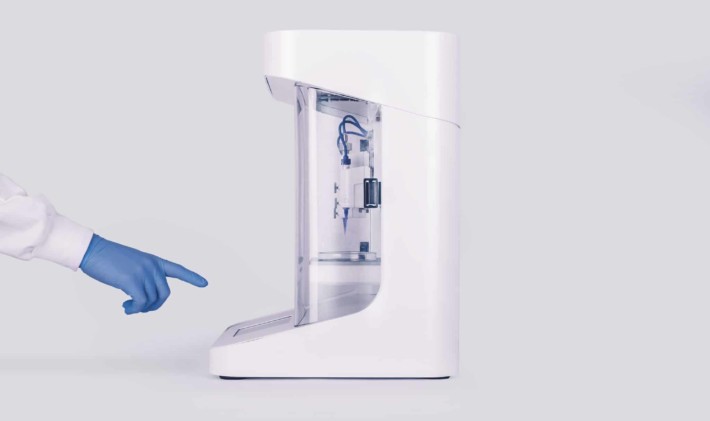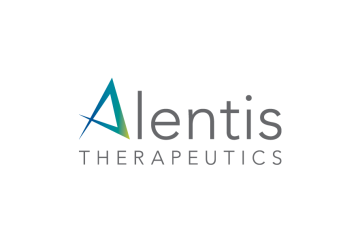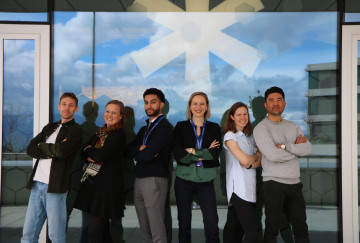FUNC-BIOINK: Revolutionizing Drug Discovery
Read on to learn about the FUNC-BIOINK project. This project is a 3 year-collaboration between Academic Centre for Dentistry in Amsterdam (ACTA), a world top-three leading educational and research institution in dentistry and CELLINK, a global leader in bioinks and 3D bioprinting. The project received a €900k subsidy from the Eurostars programme. We asked Dr. Gang Wu, Assistant Professor at ACTA, about his experiences with our Funding Application service.

Efficient drug discovery is hampered by low clinical translation
Traditionally, the identification of new candidates for drug discovery relies on two primary methodologies: the use of animal models and human 3D tissue cultures. However, while still of great value in the drug discovery process, the predictive power of these methodologies is limited: animal model studies generate results prone to differences in interspecies physiology, while 3D tissue cultures do not sufficiently capture the complex interplay between cells and their environment. Resultantly, the drug discovery process faces low clinical translation, with as little as 8% of drug candidates passing Phase I clinical trials. This comes at a high cost, as the estimated cost of failed clinical trials can add up to €0.8-1.4 billion. Thus, there is a significant unmet need for a new drug discovery platform that accurately mimics human drug metabolism and tissue functionality to test the efficacy and safety of new drugs, in an ethical manner.
Currently, there is great momentum for the development of 3D constructs for drug discovery. Organ-on-a-chip models, organoids and 3D bioprinting provide better biomimetic models, but exhibit flaws. They often do not consider the complex interplay between cells and architecture, lack essential cell types or do not undergo continuous proliferation. In addition, there are significant barriers for the translation of these techniques to the research industry, due to the limited scalability and versatility of the models and the variety between batches.
FUNC-BIOINK offers an efficient and ethical platform for drug testing
The FUNC-BIOINK project will develop a ready-to-use biofunctionalized collagen-based ink for 3D bioprinting. Within the 3D bioprinted construct, peptides will be incorporated to promote cell adhesion, spreading, survival, and direct differentiation. In this way, the most biomimetic milieu currently available for human cells will be achieved. FUNC-BIOINK will be used to print a variety of human tissues, such as skin, bone and muscle (heart). Because of the high quality and wide versatility, FUNC-BIOINK has the potential to offer a highly functional -and ethical- platform for drug development, as well as for cosmetic testing.
“Catalyze played an important role in finding partners for the project and organizing the consortium, which was very valuable. It can be difficult communicating between university and industry partners due to different language. Catalyze’s help made the process efficient and accurate, making all partners happy.” – Dr. Gang Wu on Catalyze’s role in the partner search.
Catalyze supports you every step of the way
To be eligible for a Eurostars project, there needs to be a consortium of at least two partners, each with their own expertise and set of skills that are crucial for the project. Catalyze aided in creating this consortium by building a network of possible candidates for ACTA, who initiated the project, before eventually connecting them to CELLINK, a 3D bioprinting company and global leader in bioinks for bioprinting in human tissue. During the writing process, Catalyze’s expertise supported Dr. Wu and, in the end, the proposal was ranked very high at a European level.
“I was very happy when I found out we would receive the funding. I really appreciated the support of Catalyze and will continue to use their services in the future.” – Dr. Gang Wu on receiving the Eurostars award and working with Catalyze.
Catalyze was very excited to collaborate with Dr. Wu from ACTA for this successful Eurostars application. We are proud to support innovative companies in their quest of changing the field of Life Sciences and look forward to working with Dr. Wu in the future.
Total project costs: €1.9M
Total funding amount for the entire consortium (50%): €900k



